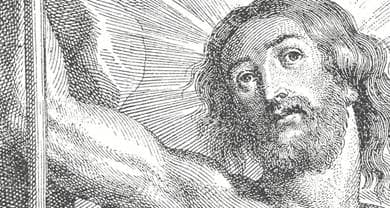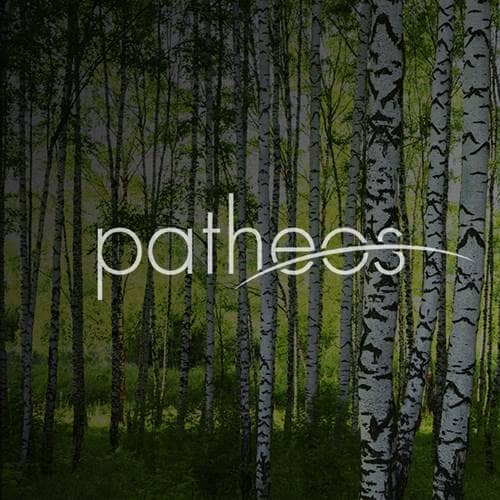- Trending:
- Pope Leo Xiv
- |
- Israel
- |
- Trump
- |
- Social Justice
- |
- Peace
- |
- Love

RELIGION LIBRARY
Anglican/Episcopalian
Founders
Anglicanism does not have a single founder; there is no Martin Luther of Anglicanism. Instead, Anglicanism has a number of contributors, people who gave something new to the English Church, or perhaps simply dispensed with something old. Among these, three individuals stand out above the rest.
In 1485, Henry VII was crowned King of England, commencing the reign of the House of Tudor that would span the 16th century. Henry's victory and the end of the Wars of the Roses were viewed on the victor's side as signs of God's favor. Henry's son, the eventual King Henry VIII, was one of the contributors to Anglicanism. Born in 1491, Henry was yet a prince when his older brother, Prince Arthur, died. Arthur had been married to Catherine of Aragon. After Arthur's death, the King arranged for the young Henry to marry Catherine, which occurred in 1509, about two months after the elder Henry died and the younger was crowned king.
Because Henry and Catherine failed to produce a male heir, Henry became convinced that their marriage was biblically impermissible and therefore cursed. He petitioned the papacy for an annulment, but was refused. In an action motivated in part by emerging nationalism and a belief in the divine right of kings, Henry drove the Act of Supremacy of 1534 through Parliament, by which he became Supreme Head of the Church of England and broke from Rome.
Thus, Henry's first major contribution to the founding of Anglicanism was the English Church's independence from the Church of Rome. He dispensed with papal authority. Henry eventually got his divorce from Catherine, married Anne Boleyn and four more wives in succession after her. He died in 1547.
Henry's second major contribution came in 1537 when he licensed an English translation of the Bible for publication in England, and in 1538, when through one of his agents, he ordered all parish churches to buy an English Bible. Previously, only the Latin Bible (the Vulgate) was authorized in church services, but since Latin was not the language of the people, the Bible was inaccessible to most. The vernacular Bible has been part of Anglicanism ever since.
Of course, what Henry gave to Anglicanism should not be viewed as if in a vacuum. Henry was a bloodthirsty tyrant and is more of an embarrassment to most Anglicans than a hero. Still, his contributions cannot be denied.
The second main contributor to Anglicanism, and the one perhaps most likely to be named if a single founder be demanded, is Thomas Cranmer. Cranmer was born in 1489 and educated at Jesus College, Cambridge. Cambridge of the 1520s was a hotbed of underground Lutheran dissent, although it seems unlikely Cranmer adopted those views until the 1530s. By the 1550s his doctrinal leanings moved discernibly away from some of Luther's views, particularly on the Lord's Supper, toward what would come to be called the Reformed branch of Protestantism.
Cranmer became Archbishop of Canterbury under Henry VIII in 1533, and played an important part in Henry's drive to end England's subjection to the papacy. He remained archbishop throughout the reign of King Edward VI, but upon the accession of Mary Tudor in 1553 he began his sputtering drive toward martyrdom. Sentenced for treason and heresy, he recanted his views, and then reversed his decision, a number of times, before finally renouncing his recantations. He was burned at the stake in Oxford in 1556.
Cranmer gave Anglicanism the Book of Common Prayer (BCP), the Church's official service book and perhaps its single most defining feature. Cranmer's second major contribution was a statement of the beliefs of the English Church, originally written as the Forty-two Articles of Religion. It was Reformed in emphasis, but also brief and at points ambiguous enough to be open to varying interpretations. These were adopted after the time of Queen Mary's reign, but revised and reduced in number to thirty-nine by Queen Elizabeth I in 1563. She is the third and final of the chief contributors to Anglicanism.
Elizabeth was born to Anne Boleyn in 1533. Crowned in 1558 upon the death of her Catholic half-sister Mary, her 45-year reign is commonly thought to have been one of England's most successful monarchs. She is also considered by many to have been a great champion of Protestantism, although her personal writings reveal that her own views may have been somewhat more complex.
The Queen's contribution to Anglicanism was her 1559 Settlement of Religion. The Settlement may be seen as looking back to the Reformed Protestant flavor of her half-brother Edward's reign, with a slightly more traditionalist, pre-Reformation bent. Thus, Church polity retained a hierarchical structure with authority vested in bishops, as well as a number of traditional forms such as clerical vestments. Cranmer's 1552 Book of Common Prayer (BCP) was also adopted, with minor, traditionalist adjustments. And the Thirty-nine Articles of 1563 largely retained Cranmer's Reformed faith, and also his brevity and ambiguity. Elizabeth wanted a Church in which as many of her people as possible could feel comfortable, both ceremonially and doctrinally. Her Settlement determined the shape of what would eventually become Anglicanism.
Many other individuals contributed importantly to the development of Anglicanism. Richard Hooker, John Overall, Lancelot Andrewes, and William Laud, with their more sacrament-centered spirituality that so influenced later Anglicanism, are certainly deserving of mention. Representing a more Reformed churchmanship, figures such as John Jewell, William Perkins, Joseph Hall, and Thomas Morton may be less conventionally associated with Anglicanism, yet were vital to its evolution. Still, the contributions of these eight and others like them were of a lesser magnitude. Without Henry's break from Rome and sanction of the English Bible, Cranmer's BCP and Articles of Religion, and Elizabeth's Settlement, Anglicanism as it has come to be known simply would not have existed.
Study Questions:
1. Describe the relationship between royalty and Anglicanism’s origins.
2. What were Henry’s two major contributions to Anglicanism?
3. Who was Thomas Crammer? What did he give to Anglicanism?
4. What happened in the 1559 Settlement of Religion?










